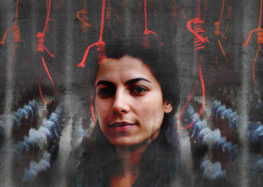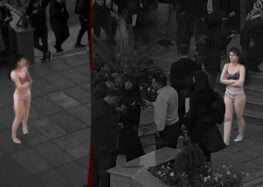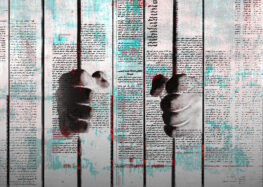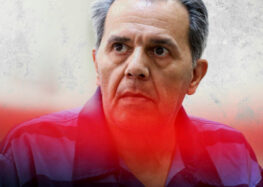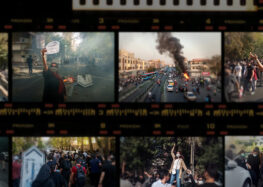Pro-Government Cleric Hamid Rohani: In Order to Solve the Problem, Kill the Dissidents as in 1988
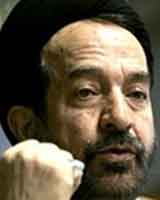 In a shocking statement, a cleric named Seyed Hamid Rohani told the radical pro-government newspaper, Vatan-e Emrooz, that dissidents should be executed en mass. Rohani is introduced in the article as a historian and author of a three-volume book about Ayatollah Khomeini. In the interview, Hamid Rohani demanded executions of imprisoned political dissidents in order to stop the roots of the problems the Islamic Republic of Iran has been facing since the elections. Although other individuals had previously talked about a serious confrontation with the opposition and political prisoners, this is the first time a pro-government publication is explicitly publishing statements from a pro-government figure who is suggesting mass executions of dissidents on its main pages.
In a shocking statement, a cleric named Seyed Hamid Rohani told the radical pro-government newspaper, Vatan-e Emrooz, that dissidents should be executed en mass. Rohani is introduced in the article as a historian and author of a three-volume book about Ayatollah Khomeini. In the interview, Hamid Rohani demanded executions of imprisoned political dissidents in order to stop the roots of the problems the Islamic Republic of Iran has been facing since the elections. Although other individuals had previously talked about a serious confrontation with the opposition and political prisoners, this is the first time a pro-government publication is explicitly publishing statements from a pro-government figure who is suggesting mass executions of dissidents on its main pages.
While the Iranian government has maintained silence on the subject of mass executions of its political dissidents in 1988, an event during which thousands were hung during a few weeks and for which no one has accepted responsibility, Rohani talked about the planned nature of the executions and validates them.
He implicitly recommended to the judicial authorities to use the mass execution of dissidents as a method that had been successful once before in suppressing and stopping activities of dissidents.
Referring to the executions of Mojahedeen Khalq Organization (MKO) members in 1988, Rohani said: “The situation in 1988 was such that the MKO members who were in prison repented in a tactical move. After the ceasefire [in the Iran-Iraq War, 1980-1988], MKO attacked Iran and simultaneously, these prisoners rioted in the prisons, setting the prisons on fire, waiting for others to reach Tehran and to end the job! Imam [Khomeini] then said those who maintain their previous positions are blasphemous [mahdoor-ol-dam, someone whose blood can be wasted, murdered] and must be tried and punished. Those executions took out the eyes of sedition and dried up the roots of that situation. I think that in the recent sedition, also, unless such an assertive, serious, and revolutionary confrontation is made, this problem will continue.”

